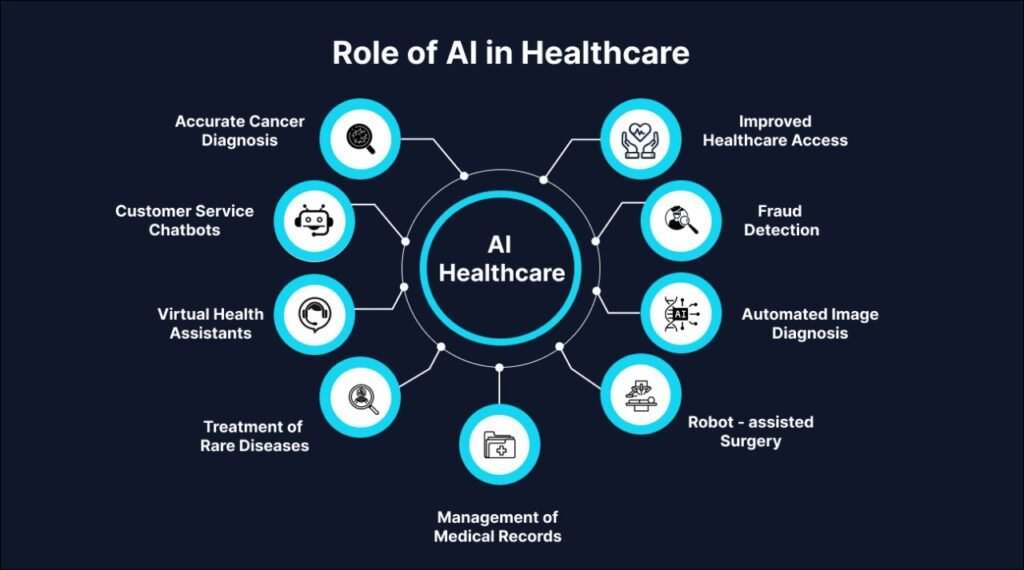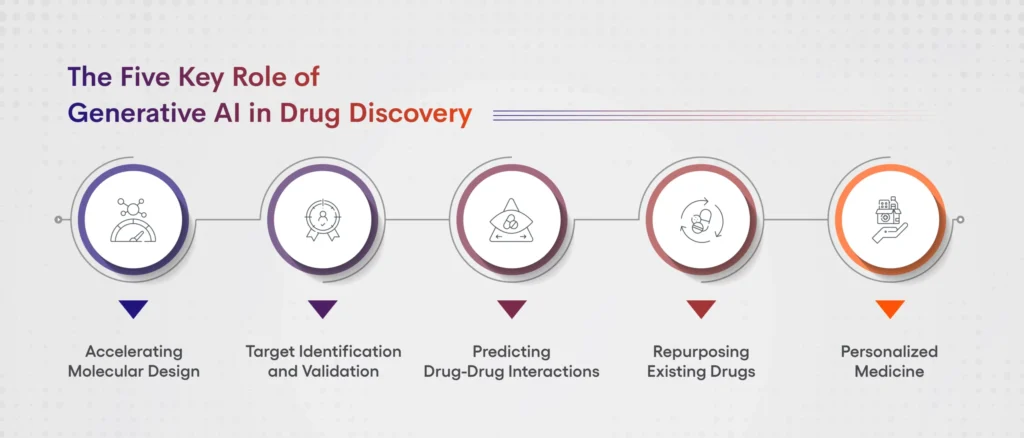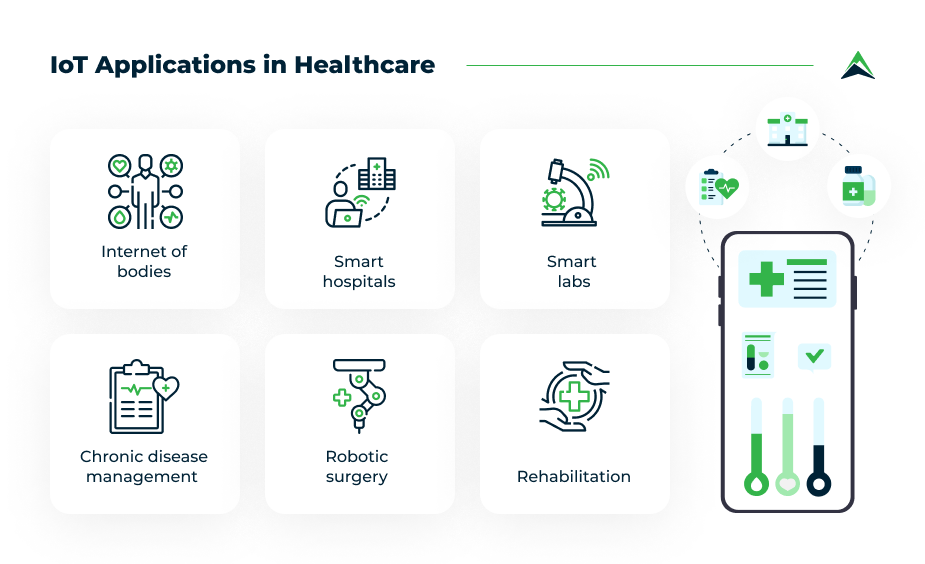Artificial intelligence has rapidly emerged as a game-changer across industries, and healthcare is among the most impactful areas of its application. By leveraging the power of AI, healthcare providers can now deliver personalized, efficient, and accurate care like never before. From improving diagnostics to developing advanced treatment plans, artificial intelligence is at the heart of modern healthcare innovations.
At Digital Erena, we understand how technological advancements shape industries, and this blog dives into the top ten ways AI is transforming patient care.
AI’s Role in Revolutionizing Healthcare Delivery
Artificial intelligence is not merely a supportive tool in healthcare; it is transforming how medical services are delivered on a global scale. By integrating AI into healthcare systems, providers can now address long-standing challenges such as delayed diagnoses, resource shortages, and rising operational costs
For instance, AI enables telemedicine platforms to provide remote consultations with enhanced diagnostic accuracy. This innovation is particularly beneficial for underserved regions with limited access to healthcare facilities.
AI’s adaptability allows it to work across diverse healthcare scenarios, from predicting disease outbreaks to optimizing emergency room workflows. With smart healthcare solutions, hospitals can reduce bottlenecks, minimize wait times, and ensure that patients receive timely, effective care.

1. Enhanced Medical Diagnosis
The Power of AI in Detecting Diseases
AI has revolutionized medical diagnosis by offering unparalleled precision and speed. By analyzing medical imaging such as X-rays, MRIs, and CT scans, AI can detect patterns and abnormalities that human specialists might miss. For instance, AI systems can identify early signs of cancer, heart disease, and neurological disorders, enabling timely interventions and improved patient outcomes.
Reducing Errors with AI-Powered Tools
One of the significant challenges in healthcare is diagnostic errors, which can lead to delayed treatments or incorrect interventions. AI-driven diagnostic tools act as a second opinion for clinicians, reducing the likelihood of mistakes and enhancing the reliability of diagnoses. This not only boosts patient trust but also ensures better safety standards in medical practice.
Leveraging Big Data for Better Insights
AI algorithms process vast amounts of unstructured data from electronic health records, lab results, and patient histories to uncover critical insights. Natural language processing (NLP) technologies are particularly useful in extracting relevant information from clinical notes, ensuring no detail is overlooked in the diagnostic process.

A Game-Changer for Patient Outcomes
Enhanced medical diagnosis through AI is a transformative step forward, ensuring that patients receive faster, more accurate care. By leveraging this technology, healthcare providers can focus on proactive, life-saving treatments that make a lasting difference.
2. Personalized Treatment Plans
Tailored Care for Every Patient
Personalized treatment plans are reshaping how healthcare providers approach patient care, moving away from a one-size-fits-all model. AI-powered tools analyze individual patient data, including genetic information, medical history, and lifestyle factors, to create treatment strategies uniquely suited to each person’s needs. This precision-based approach ensures higher success rates and minimizes adverse reactions.
Role of AI in Personalized Medicine
Artificial intelligence plays a pivotal role in enabling personalized medicine by processing vast datasets with remarkable speed and accuracy. Machine learning algorithms identify patterns and predict the effectiveness of specific treatments for individual patients. For instance, in oncology, AI can recommend targeted therapies based on a patient’s genetic makeup and tumor profile, optimizing the chances of a successful outcome.
Reducing Trial-and-Error Approaches
Traditional treatments often involve a trial-and-error process, which can be time-consuming and frustrating for patients. AI eliminates much of this guesswork by providing evidence-based recommendations. Patients receive treatments that are more likely to work the first time, reducing the physical and emotional toll of prolonged or ineffective therapies.
A New Era of Healthcare Innovation
AI-driven personalized treatment plans represent a significant leap forward in healthcare innovations. By addressing each patient’s unique needs, these advancements not only improve outcomes but also enhance the overall care experience. This transformative approach ensures that healthcare is not just effective but also deeply patient-centric.
3. AI-Powered Virtual Health Assistants
Accelerating the Path to New Treatments
AI is making waves in the drug discovery process by dramatically speeding up the time it takes to develop new medications. Traditionally, the drug discovery process was long, costly, and highly unpredictable. However, AI now enables researchers to sift through massive datasets, analyze complex biological information, and identify promising drug candidates in a fraction of the time.

AI in Predicting Drug Efficacy
One of the most significant advantages of AI in drug discovery is its ability to predict how effective a drug will be before it even enters clinical trials. Machine learning models can analyze chemical compounds and predict their behavior in the human body. This reduces the need for lengthy and costly trial-and-error processes, making the drug development pipeline more efficient and targeted.
Identifying Potential Drug Targets
AI can also help identify potential drug targets by analyzing biological data and uncovering correlations between diseases and molecular pathways. By understanding how specific proteins or genes are involved in a disease process, AI systems can suggest new targets for drug development. This approach has already been successfully applied in areas like cancer, where AI has helped identify novel targets for therapies.
Reducing Costs and Risks
By automating much of the drug discovery process and providing more accurate predictions, AI reduces the financial and scientific risks associated with drug development. AI models allow pharmaceutical companies to test thousands of compounds virtually before committing to expensive clinical trials. This not only accelerates the development of new drugs but also makes treatments more accessible and affordable for patients.
A Future of Faster, Smarter Drug Development
The use of AI in drug discovery is paving the way for faster, more efficient, and more precise treatment development. As AI technology continues to evolve, it promises to unlock new possibilities in pharmaceutical research, leading to breakthrough therapies that can address complex diseases more effectively. This revolution in drug discovery will change the landscape of modern medicine, offering hope for patients with previously untreatable conditions.
4. Streamlining Administrative Tasks in healthcare
Automating Routine Healthcare Processes
Administrative tasks are essential but time-consuming elements of healthcare that often divert attention from patient care. AI is helping to streamline many of these processes, automating tasks such as patient scheduling, billing, and insurance claims. By reducing manual input, AI systems enhance efficiency, minimize errors, and ensure that medical professionals can focus more on direct patient care.

Enhancing Data Management and Accuracy
AI’s ability to manage and process large amounts of data is particularly beneficial in healthcare administration. Electronic health records (EHRs) and other patient data are crucial for effective treatment, but they can be difficult to manage manually.
Improving Billing and Coding Efficiency
Billing and coding are critical components of healthcare administration, but they are often complex and prone to human error. AI-powered tools can automate the coding process, identifying the correct codes for procedures and diagnoses.
Enhancing Appointment Scheduling and Patient Flow
AI can also optimize appointment scheduling, ensuring that healthcare providers use their time efficiently. By analyzing patient needs, medical histories, and provider availability, AI systems can schedule appointments in a way that minimizes delays and maximizes throughput.
5. Predictive Analytics for Proactive healthCare
Shifting to Preventive Healthcare
Predictive analytics is driving a shift in healthcare from reactive treatment to proactive care. By analyzing vast amounts of data, AI algorithms can identify early signs of potential health issues before they become serious.
Identifying High-Risk Patients
Predictive analytics uses patient data, including medical history, lifestyle factors, and real-time health metrics, to identify individuals at higher risk for diseases like heart disease, diabetes, or cancer.
Managing Chronic Conditions More Effectively
Patients with chronic conditions such as asthma, hypertension, and diabetes require continuous management. Predictive analytics helps track the progression of these conditions and anticipate flare-ups or complications.
Optimizing Healthcare Resources
Predictive analytics also plays a crucial role in optimizing healthcare resources. By predicting trends in patient care needs, hospitals and clinics can better allocate staff, beds, and medical supplies.
6. Advanced Surgical Technologies
Enhancing Precision with Robotic Surgery
AI-driven robotic surgery is transforming the way surgeries are performed, offering unmatched precision and control during complex procedures.

AI-Assisted Surgery for Better Outcomes
AI-assisted surgical technologies leverage real-time data from diagnostic imaging and patient health records to provide surgeons with up-to-date information during surgery. These systems can offer suggestions based on data analysis, helping surgeons make better decisions while operating.
Minimally Invasive Procedures
AI in surgical technologies enables more minimally invasive procedures, which involve smaller incisions and less trauma to the body. These procedures lead to quicker recovery times, less scarring, and reduced chances of infection.
Training and Simulation with AI
Advanced AI-powered simulation tools are becoming an integral part of surgical training, enabling future surgeons to practice procedures in a virtual environment before performing them on patients. These simulations replicate real-world scenarios, providing a safe space for trainees to develop their skills and decision-making abilities
7. Remote Patient Monitoring
Continuous Care at a Distance
Remote patient monitoring (RPM) is a game-changing advancement in healthcare that leverages AI and wearable devices to keep track of patients’ health outside traditional clinical settings.
Empowering Patients to Manage Their Health
Remote patient monitoring empowers patients to take an active role in managing their own health. With AI-powered apps and devices, patients receive real-time feedback on their health metrics, and can make informed decisions regarding medication, lifestyle changes, or seeking medical advice.
Early Detection and Preventive Care
AI-powered RPM systems can detect subtle changes in a patient’s health data that might otherwise go unnoticed, allowing healthcare providers to intervene proactively. For example, an AI algorithm may detect an early spike in a patient’s blood pressure, alerting the healthcare team before it leads to a major health event like a stroke
Reducing Healthcare Costs
One of the major benefits of remote patient monitoring is its potential to reduce healthcare costs. By preventing hospital readmissions, unnecessary visits to healthcare facilities, and managing chronic diseases more effectively, RPM significantly cuts down on treatment expenses.
8. Revolutionizing Drug Discovery and Development
Speeding Up Drug Development with AI
AI is transforming the drug discovery and development process by significantly accelerating timelines and reducing costs. Traditionally, discovering new drugs took years of research and development, with a high risk of failure.

AI in Drug Target Identification
A critical step in drug discovery is identifying the right drug targets – molecules or proteins that play a key role in disease. AI has revolutionized this process by analyzing complex biological data and finding hidden relationships between diseases and genetic factors
AI-Powered Drug Screening
AI algorithms are helping researchers screen vast libraries of chemical compounds to identify potential drugs faster than traditional methods. By simulating how different compounds interact with biological targets, AI can predict their effectiveness in treating certain diseases
Optimizing Clinical Trials with AI
AI is also making clinical trials more efficient by identifying the best candidates and predicting patient responses. Machine learning models analyze patient data, such as genetic makeup and previous treatment responses, to match them with appropriate clinical trials
9. Enhancing Mental HealthCare
AI for Early Detection of Mental Health Conditions
AI is playing a pivotal role in the early detection of mental health conditions, helping healthcare providers identify patients at risk before symptoms become severe.
Personalized Mental Health Treatment Plans
AI-driven tools are enabling more personalized treatment plans for individuals struggling with mental health issues. By analyzing a patient’s medical history, lifestyle, genetics, and responses to previous treatments, AI systems can recommend tailored interventions that are more likely to be effective
AI-Powered Chatbots for Therapy
AI-powered chatbots are providing a new form of mental health support, offering patients on-demand access to mental health resources. These chatbots can engage in conversations, listen to patients’ concerns, and provide coping strategies, mindfulness exercises, or emotional support.
Virtual Reality for Mental Health Treatment
AI integrated with virtual reality (VR) is becoming a powerful tool in the treatment of various mental health conditions, including anxiety, phobias, and PTSD. By creating controlled virtual environments, therapists can expose patients to their triggers in a safe and manageable way, allowing them to confront and overcome their fears.
10. Shaping the Future of Healthcare Technology
The Rise of AI in Healthcare
Artificial intelligence is not just transforming healthcare today—it’s also shaping the future of medical technology. AI is revolutionizing the industry by enhancing diagnostic accuracy, streamlining administrative tasks, personalizing treatment plans, and improving patient outcomes
Integrating AI with IoT for Smarter Healthcare
The integration of AI with the Internet of Things (IoT) is one of the most exciting developments in healthcare technology. IoT devices, such as wearable health monitors and connected medical equipment, generate a vast amount of data that can be analyzed by AI algorithms.

The Role of Big Data in Shaping Healthcare
Big data plays a crucial role in the future of healthcare by providing a wealth of information that can improve decision-making, patient care, and treatment outcomes.
Advancements in Robotics and Automation
Robotics is another area where AI is making a significant impact. The future of healthcare will likely see an increase in the use of robots for both surgery and care delivery. Robotic surgery systems, powered by AI, can already perform minimally invasive procedures with greater precision than human hands alone.
FAQs
- What is AI in healthcare?
AI in healthcare refers to the use of artificial intelligence technologies to improve diagnosis, treatment, patient care, and overall healthcare services. - How does AI transform patient care?
AI enhances patient care by enabling faster, more accurate diagnoses, personalized treatment plans, and continuous monitoring, leading to improved outcomes. - What are the benefits of AI in medical diagnosis?
AI helps healthcare professionals make accurate, quicker diagnoses by analyzing large datasets and detecting patterns that may be missed by humans. - Can AI improve mental health care?
Yes, AI can assist in mental health care by detecting early signs of mental health conditions, personalizing treatment plans, and offering on-demand therapy via chatbots. - What is predictive analytics in healthcare?
Predictive analytics in healthcare uses AI to analyze data and predict potential health risks, enabling proactive care and early interventions. - How does AI support drug discovery?
AI speeds up drug discovery by analyzing vast amounts of data to identify promising drug candidates, optimize clinical trials, and predict drug efficacy and safety. - Can AI monitor patients remotely?
Yes, AI enables remote patient monitoring through wearables and sensors, allowing healthcare providers to track vital signs and intervene when necessary. - How does AI help personalize treatment?
AI personalizes treatment by analyzing a patient’s genetic makeup, lifestyle, and medical history to recommend the most effective therapies tailored to individual needs. - What is the future of AI in healthcare?
The future of AI in healthcare involves smarter technologies that will enable precision medicine, improve clinical decision-making, and enhance patient care on a global scale. - Are there any risks of using AI in healthcare?
While AI brings significant benefits, risks include data privacy concerns, potential biases in algorithms, and the need for human oversight in critical healthcare decisions.
Conclusion
The transformative power of AI in healthcare is undeniable. From enhancing diagnostic accuracy to personalizing treatments, AI is at the forefront of a healthcare revolution. As these innovations continue to evolve, patients and providers alike will benefit from improved outcomes, greater efficiency, and a more personalized care experience.
If you’re looking to explore how digital marketing can further elevate healthcare innovations and services, connect with Digital Erena today. Let us help you stay ahead in this rapidly changing landscape.

Pingback: Rol van digitaal maken in gezondheids- en fitnessindustrie
Pingback: Travel Trends: What's Hot in 2025?
Pingback: 10 AI Gezondheidszorgtrends om te volgen - DigitalErena.nl
I don’t think the title of your article matches the content lol. Just kidding, mainly because I had some doubts after reading the article.